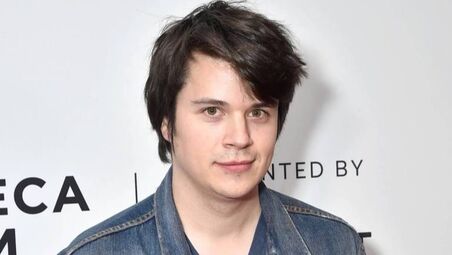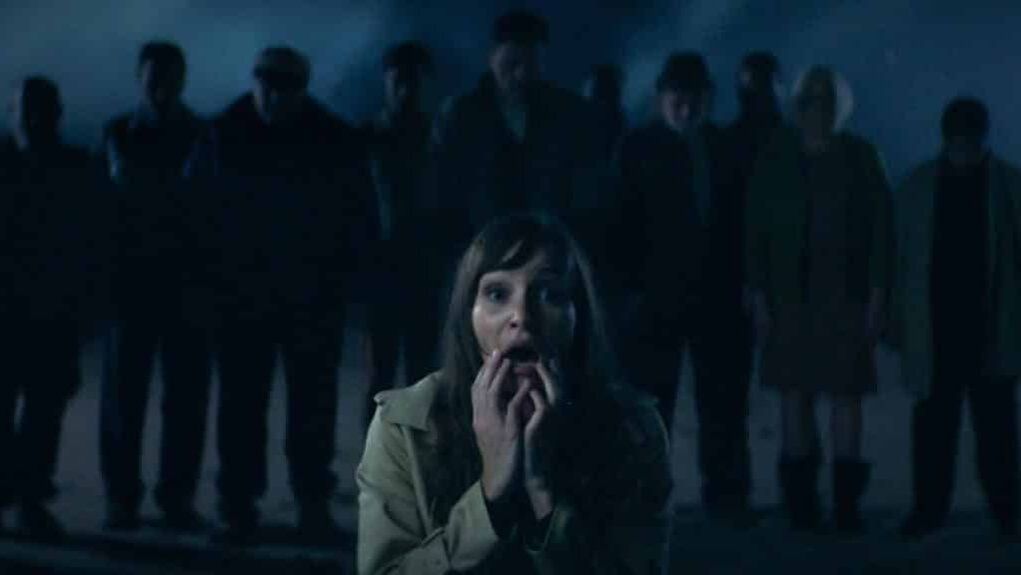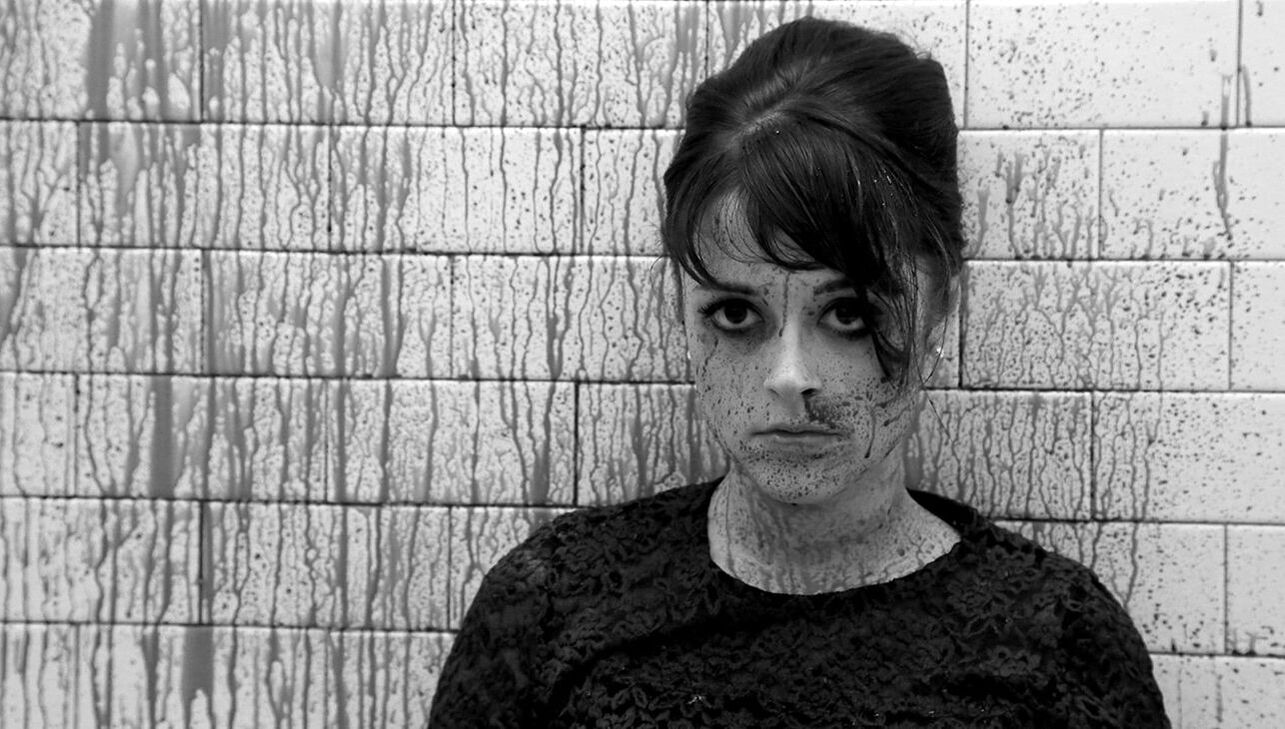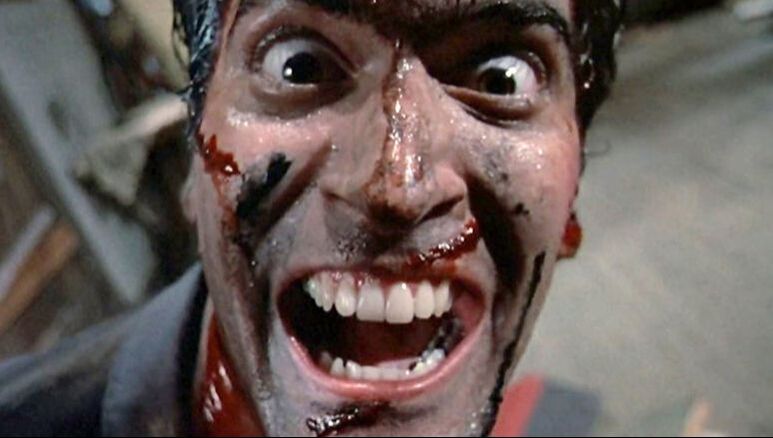 There is no such thing as an offseason for director Mickey Keating... ...The director behind fascinating horror films such as Darling, Pod, and Carnage Park, Mickey Keating's latest offering, Offseason, has just premiered at SXSW, and believe me when I tell you that it is one of the more interesting, spooky and all around excellent horror films I've seen lately! The film follows Jocelin Donahue (Doctor Sleep, The House of the Devil) as a woman who must return to the island home of her deceased mother. But once she gets there, nothing seems quite right, and soon she finds herself trapped in an inescapable, seaside nightmare. Keating is the sort of director that loves to play in the sandbox of film and ideas that go places others wouldn't dare, and so it was a pleasure to be able to sit down with the director and chat about his work, in which we discussed Offseason, working with Donahue, the film's inspirations, future projects, and the splatter movie he'd love to tackle someday! Killer Horror Critic: First off, congrats on Offseason playing at SXSW! I have to tell you, I’ve watched it a few times now, and I absolutely love it. I say this as a huge fan of Darling, but I think this is your best film yet. Mickey Keating: Thank you so much! I really appreciate that. I was telling someone, I obviously love ‘Darling’, but there’s a spiritual connection to that with this, so I’m happy to hear that. KHC: Right off the bat, the thing that stands out to me is Melora Walters, and how she sets the stage so beautifully in that opening scene, and then her scenes further down the line with Jocelin Donahue. Both of them are just so tremendously heartbreaking in their moments together. Can you talk about how they came on board the film and what it was like working with them? MK: Jocelin I had wanted to work with forever and I didn’t know if she would even read the script. While we were thinking about who to cast, I was like why not her? They got in touch with her reps, we sat down, and immediately I was like, you are exactly who I’m looking for! You’re not going to play this screaming and running, you seem like you can carry a whole lot of weight on your shoulders without saying much. Then Melora, I’ve been such a fan of hers forever. She’s in so many of my favorite movies. KHC: So many. I just saw her in The Pale Door where she was fantastic. MK: Yeah! And so I had no idea, will she even meet with me? I sat down with her and we started talking about Faulkner and southern gothic literature and how that could tie into this. Then I begged her, like please, there is no one else I want to cast, please be in this movie! Fortunately, she came down to Florida and did it and I think the great thing about them both is they play off each other very well. They were very supportive of one another. I was just lucky to sit back and watch them act. KHC: They’re amazing. Just so utterly captivating. You tend to work with these smaller casts in these more personal stories. Is that a preference, or is that more out of necessity? MK: Yeah for sure. When it comes to horror especially, the things I can’t latch onto are five people going into the woods and getting picked off. Just the way that I write, I’m really interested in anchored interactions and dealing with that kind of thing, so I don’t know how necessarily to do something that would be like a broader ensemble. It’s definitely an effort first and foremost. If I had fifty million dollars I’m sure it would still be the same kind of movie layout. KHC: Still just a super intense personal journey? MK: Totally. I look at something like Rod Serling’s “The Twilight Zone”, and there’s always these stories anchored by one or two people’s perspectives. I think that’s easier to latch onto and trust, or mistrust a character’s perception of what’s going on, more so than it is to try and communicate through four different characters. Photo from Offseason "When it comes to horror especially, the things I can’t latch onto are five people going into the woods and getting picked off. Just the way that I write, I’m really interested in anchored interactions and dealing with that kind of thing, so I don’t know how necessarily to do something that would be like a broader ensemble." KHC: It is something that you tend to do in your work too, is explore these terrors of the mind and family dynamics. You had mentioned Darling as having some similarities with Offseason, and I was watching Pod the other day and saw some similarities there as well, with these two people on a trip to visit a family member dealing with some issues. Why is this a theme that keeps coming up? Is it something that you personally relate to in any way, or just something that fascinates you? MK: Definitely. I have to say, I promised my mom I would ensure everyone that this is in no way based off of her. [LAUGHS] MK: My mom is the antithesis of Melora Walters. But I am intrigued by the inability to trust your own mind or things that are inherently just human nature that is supposed to be close to you. The idea that your parent can be withholding these secrets or be so far gone that you don’t know whether what they’re saying is the truth or not is a terrifying thing. The idea that after someone passes away, which has occurred to people that I know, who have had family members try to change wills…The darkness of humanity is so much darker when it’s with either your own mind or the people that should be the closest to you, so these are themes that I’m very curious about and probably will keep exploring in some way or another. But I had a very happy upbringing, so I just want to make sure I say that. [LAUGHS] KHC: Okay, so the film in no way reflects that then. But I have to say, as someone who, I mean I never dealt with my own Melora Walters, but I can say as someone who has lost a stepmother, the whole thing really strikes home. So even if you’re not pulling from real life experience there, you did a fantastic job bringing that to life. MK: Thank you. KHC: Something else that caught my interest is that the film has this very timeless vibe to it. You never really quite cement it any particular era, so when do you view this film taking place and why that time period? MK: I wanted it to be this kind of dream world time capsule, without being too explicit but also without having to justify why they’re not following GPS or yelping The Sand Trap-- KHC: Or getting on a cell phone and calling the cops. MK: Exactly. Just this idea of what Americana was and how Disneyworld came up. You know, every place in Florida was a tourist trap. Just that kind of nature of being able to take these ideas of what Americana is, and strip that away and show an empty beach town that should be teeming with life. My favorite filmmakers, whether it’s David Lynch or the Coen Brothers to an extent or Robert Altman, kind of present these movies that are in this dream world time period and that’s the effort that I was trying to make with this one for sure. And you can see that with my other films, with the exception of ‘Carnage Park’, which is very specifically set as 1970-whatever, but this is more nebulous I suppose. Photo from Darling (2015) "I am intrigued by the inability to trust your own mind or things that are inherently just human nature that is supposed to be close to you. The idea that your parent can be withholding these secrets or be so far gone that you don’t know whether what they’re saying is the truth or not is a terrifying thing." KHC: I love that it has that dreamlike quality to it. Dreams become sort of a theme of the film too, because you have this opening where Melora is talking about nightmares becoming part of the family, and you see on her tombstone later that it says “life is a dream”. What was it about that theme that attracted you with this film? MK: Great question, and I’m glad you noticed the tombstone. I definitely wanted to present something that was a story that leaned more into the surreal aspect and nightmare logic, and I know it’s incredibly frustrating when something is revealed to just be a dream, or something surreal to be all in a character’s head. I didn’t want to do that. I wanted to present something that was so much bigger, and so much more bizarre…like how when you experience something traumatic or something you don’t understand, a lot of times people say I felt like I was dreaming or this felt like a nightmare. That’s the tone and the essence I wanted to convey. The audience’s interpretation of what happened, whether certain instances were nightmares or something like that, is as interesting to me as my own intentions. So that’s what I’m really excited in presenting without being like it was all a dream, or she’s stuck in a nightmare. So, I’m kind of presenting that as a motif, in the same way that things like ‘Turn of the Screw’ or gothic literature kind of tilts the perception into the untrustworthy narrator territory. KHC: I love that, and it has that effect. Every time I watch this film, I keep walking away thinking, what is really going on here, but in the best way possible. MK: That’s awesome. KHC: You mentioned a few influences already such as David Lynch and the story Turn of the Screw. I think it might be fair to say that there are also going to be some who walk away from the film comparing it to Lovecraft, because it feels like every time there’s any sort of aquatic horror territory, Lovecraft gets mentioned. I personally noticed some Silent Hill vibes with all of the fog permeating throughout the town as well. Is any of that accurate as far as some of the influences go, and where does some of the inspiration for the lore and look of the film come from? MK: You’re a hundred percent right, there’s no way to escape Lovecraft no matter how hard you try. KHC: It comes up every damn time. [LAUGHS] MK: It’s in our DNA. ‘Silent Hill 2’, the videogame, scared the ever-loving hell out of me when I first played it. KHC: It’s the best one! MK: The movies, not so much. But the idea of fog in a fog world is something that’s been in my psyche and my DNA so there’s no escaping it. There was an effort to be like okay, my creepiest movies were very much like, I’m open about how much I love ‘Repulsion’ or ‘Rosemary’s Baby’, something like that, and with this one, I took a little extra time. I was like all right, let’s try to do something different. Obviously because cinema is my life, I will never not have…it just directly influences me. KHC: Of course. Photo from Evil Dead II (1987) "For the thousandth time, I was watching ‘Evil Dead II’ the other day and I was like, this movie is so goddamn ambitious and fun, I would love to do something like that. I would love to do a splatter movie. I would really love to do some variation of a crime movie, but with horror movie violence." MK: But I want to try to capture these emotions of reading something like Shirley Jackson’s ‘The Summer People’, because you read that story and you’re like, what happens at the end? What the fuck? Or like Faulkner’s ‘A Rose for Emily’, where it’s so horrific by the end but you’re left open to that interpretation. So that kind of emotion was something that was really exciting for me. But you see the references. We used some songs from ‘The Fog’ (1980), you know the radio songs from ‘The Fog’? I love ‘The Fog’. Another big visual reference was ‘Red Desert’ by Michelangelo Antonioni, which I think is a masterpiece, but it’s not anything thematically similar. It was an effort to be like, let’s not give an anchor point, because it should be its own feeling in some way. KHC: I love that you mention The Fog. Just before this, I was thinking about how Offseason feels like the kind of story that old man in The Fog would tell by the fire on the seaside. MK: I’ll take that for sure! It’s got a great soundtrack. The minute I realized we could use from their old library, some of those songs are just breathtaking, so I was like absolutely! One hundred percent! There’s my Fog homage. KHC: Right! Not going to say no to that. Speaking of homages, you’ve mentioned some of the filmmakers that you’ve been inspired by, and you do often tend to homage other filmmakers while providing your own Mickey Keating twist, so is there an influence of yours or a sub-genre that you haven’t quite tapped yet that you’re hoping to at some point? MK: I mean, endlessly. For the thousandth time, I was watching ‘Evil Dead II’ the other day and I was like, this movie is so goddamn ambitious and fun, I would love to do something like that. I would love to do a splatter movie. I would really love to do some variation of a crime movie, but with horror movie violence. KHC: Oh my god, yes. MK: The well is endless. There’s so many things I want to do. The Brian De Palma documentary said it best in that the director can never plan. They can only hope and then take the first thing that comes to them. So as long as I’m not doing a repetition of any of these movies, I will be happy. I shot another movie in November, and that’s in Spanish and it’s a throwback to gross, gritty 2000s slasher movies. KHC: Hell yes! MK: I’m always trying to push new directions. This is called ‘Invader’, and it’s mostly in Spanish and very much like ‘Wolf Creek’ and those kinds of movies. KHC: That sounds amazing! Before I let you go, I thought the imagery of Offseason was breathtaking. I know you said you shot in Florida, but was this mostly shot on location, and where did you shoot in particular? MK: Yeah. From the first conversation, I was like this has to be Florida. If we shoot in California, it’s going to look like every other movie. So, we shot in this town called New Summer Beach, and it’s a lot more of a modern beach town than the film conveys. I hadn’t been there for about fifteen years, but I wrote it thinking back about what it looked like back then. Everything you see for the most part, I mean we emptied out that town, we fogged it up. Practical fog is an absolute nightmare. That bridge was a real bridge. We had to hold off traffic. The only thing we shot in LA was the lawyer office scene, because I wanted big skyscrapers in the background to offset the Florida location. Florida, I recommend filming there, to an extent. KHC: Well I mean it looks great. And I can’t believe that bridge was a real bridge. Some of the shots you got of it look incredible. MK: Thank you. It would have to go up and down, up and down for every take, and the whole time I was like, if this bridge breaks, we’re gonna be in big, big trouble. [LAUGHS] KHC: You’d have your own run in with murderous townspeople. MK: Yeah, exactly. And the state of Florida would be an owner of this movie now. KHC: Well, thank god it’s not. By Matt Konopka
0 Comments
Leave a Reply. |
Archives
March 2023
|



 RSS Feed
RSS Feed